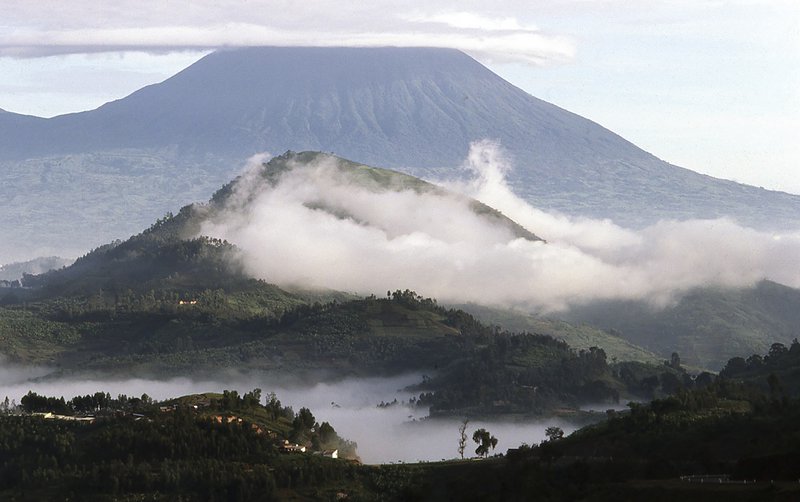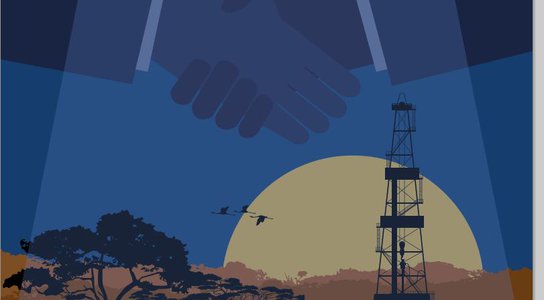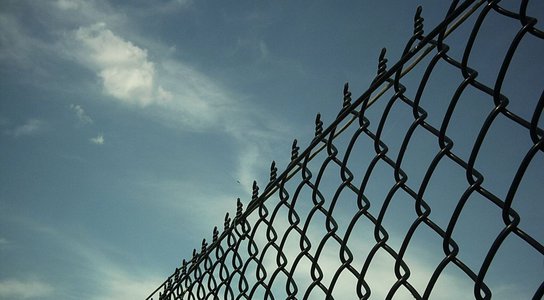
This article first appeared in the East African newspaper.
Uganda is on the verge of some big decisions for its economy, its environment and its people in general. It is important they get it right – so what questions need answering?
On the 1st of July the Government published a list of 19 companies that expressed an interest in bidding for its oil blocks. Some of these companies will go on to sign deals worth billions of dollars in highly sensitive areas including national parks and alongside the DRC border.
Whether this should be happening at all is the first question. Based on years of investigating oil operations in developing countries, Global Witness has serious concerns about the potential environmental and security consequences of allowing oil extraction to take place in fragile areas like Murchison and Queen Elizabeth national parks and nearby areas.
Nonetheless, the publication of the names of companies and the map of new oil blocks is a welcome step towards transparency in a sector long characterised by secrecy. In theory this should help the government to select the best companies to partner with. The contracts handed out are a marriage of sorts, once entered into these deals can last 30 years or more. Of course all marriages should start with courting, but the family needs to vet the suitor carefully. So who are these companies and what should be considered, given the problems that other oil rich developing countries have faced in the past?
The current licencing round has not lured the biggest oil companies. Of the oil companies already operating in Uganda, only Tullow appears to have come forward, while the remaining applicants are a mix of small and medium sized outfits. Low oil prices and a lack of capital, coupled with the difficulties companies have experienced in Uganda over tax and production licences, appears to have deterred the oil majors from exploring fields in Uganda. So the list of applicants includes a number of companies without long histories, making informed selection more difficult.
There are three important things that any Government should consider as it goes about selecting the companies it invites to bid.
Firstly, the Government must assure themselves that the companies have the technical and financial capacity to explore for oil; the Government needs to know where the financing will come from. A problem in the international oil scene is the phenomena of companies that sign deals, with no intention of exploring for oil, then sell them on at a profit. As such, governments do not maximise their profits.
It is also important governments select companies with no history of corrupt practices. One company on the Ugandan list is Oranto Petroleum from Nigeria. In 2007, its chairman authorised a payment, deemed a bribe by the Liberian Auditor General, to Liberian Parliamentary officials in order to secure oil contracts.
Secondly, protecting Uganda’s highly sensitive and bio-diverse Albertine Graben, where the majority of exploration is taking place, should be paramount. If these areas are to be opened up at all, the Government should select companies with strong environmental track records, technical capacity and public reputations to protect to ensure that the risk of environmental and social harm is minimised.
Global Witness is particularly concerned by the decision to open up the Ngaji block in Queen Elizabeth National Park adjacent to Congo’s iconic Virunga National Park in DRC. Virunga has been subject to a major international campaign exposing the activities of British oil company Soco International and calling for the park, a UNESCO biosphere and home to some of the last remaining mountain gorillas, to be protected from oil extraction.
The Government should collect and publish the names of the true “beneficial” owners of all companies bidding. That is to say, they should name the actual human being that will profit if a deal is signed. Companies do not always have to name their shareholders in secrecy jurisdictions like the British Virgin Islands or the Caymans. This can obscure the real owners of any given company, making it difficult to know whether there is a conflict of interest. Collecting and publishing the true owners will help to avoid impropriety in the awarding of contracts.
So far the Government has acted transparently by publishing the list of interested companies, which is positive. This transparency must continue as the process continues. The Government should explain why they have chosen companies for short listing and how they have measured them. They should also publish the contracts so that people can see the deals for themselves.
Uganda suffers from chronic corruption. It is vital that it does not seep into the oil sector too. While Ugandans must trust educated Government technocrats to make complex decisions on their behalf, they should be able to scrutinise the decisions that they make. Oil could be a blessing or a curse for Uganda, transparency is a vital part of making sure it doesn’t become the latter.
Subsequent to the publication of this article Global Witness has received a letter from Oranto’s lawyers confirming that Prince Arthur Eze was asked if he would be willing to pay $1500 in response to a request made by the “clerks and secretarial staff” in connection with the contracts for blocks LB-11 and LB-12 but say that Prince Arthur Eze understood the payment was for overtime salaries for the parliamentary officials whilst they prepared 300 copies of Oranto’s oil contracts for distribution to the Liberian Legislature and that it was in fact never made. Oranto’s lawyers deny that Prince Arthur Eze, Oranto or any third party on their behalf ever paid or authorised any bribes and say that “the findings of the Liberian General accounting committee to the effect that a payment analogous to a bribe was made are erroneous”


